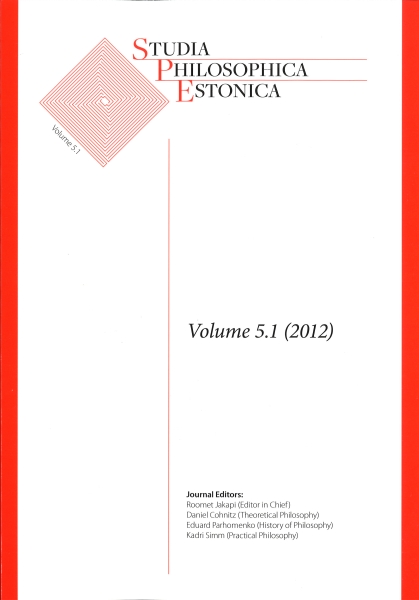Objectivities
DOI:
https://doi.org/10.12697/spe.2012.5.1.01Keywords:
language, meaning, relativismAbstract
I argue that one in particular of Crispin Wright’s attempts to capture our common or intuitive concepts of objectivity, warrant, and other associated notions, relies on an ambiguity between a given constructivist reading of the concepts and at least one other, arguably more ‘ordinary’, version of the notions he tries to accommodate. I do this by focusing on one case in point, and concluding with a brief argument showing how this case generalises. I demonstrate why this ambiguity is unacceptable and also that its resolution undermines the aim it serves: to account for and accommodate our ordinary conception of (at least) objectivity, warrant (or justification) and truth.
References
Boghossian, P. (2003). The normativity of content, Philosophical Issues 13:31-45.
Gödel, K. (1995). The present situation in the foundations of mathematics, in S. Feferman (ed.), Collected Works, Vol III, Oxford University Press, Oxford, pp. 45-53.
Wright, C. (2001). Rule-following, meaning and constructivism, Rails to Infinity, Harvard University Press, Cambridge, MA, pp. 53-80.
Wright, C. (2004a). Intuition, entitlement and the epistemology of logical laws, Dialectica 58: 155-175.
Wright, C. (2004b). Warrant for nothing (and foundations for free)?, Proceedings of the Aristotelian Society Supplementary LXXVIII: 167-212.





